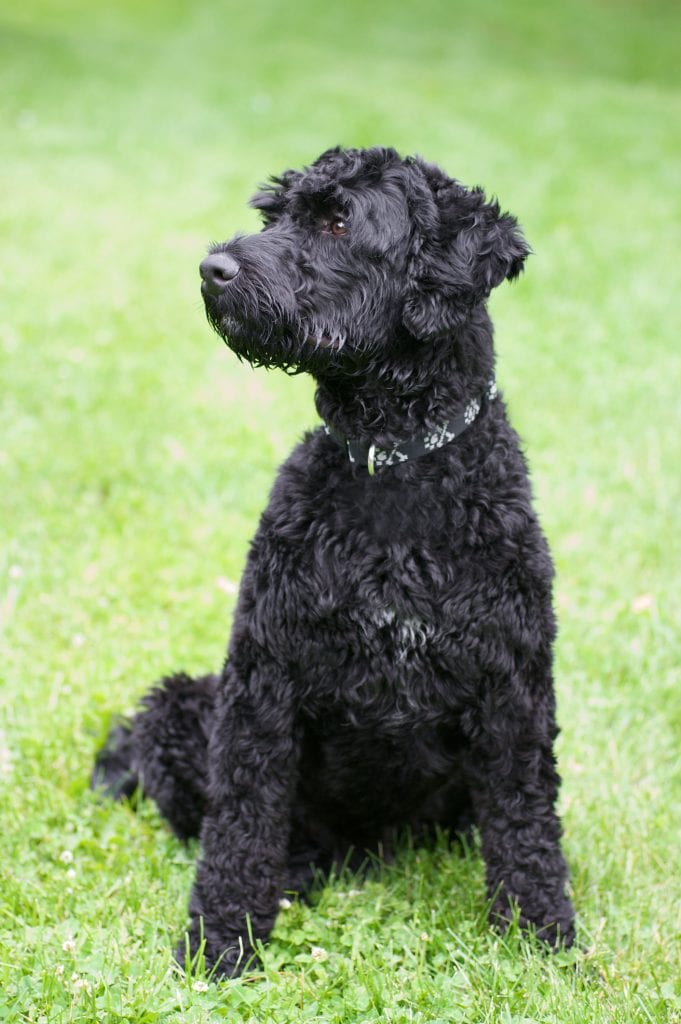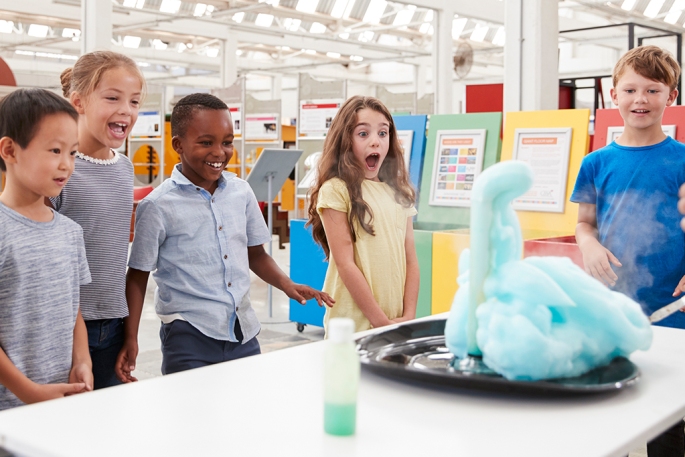
Technology and creative thinking make so many advances in our daily lives it’s often hard to keep up. It’s up to parents to take advantage of local resources. Here are schools, camps, programs and museums that emphasize STEAM (science, technology, engineering, art and math) for kids.
Atlanta Academy’s Innovation Center takes 21st Century learning to the next level by providing tools, space and opportunity for students to discover, problem-solve, build prototypes and collaborate as they bring ideas (and baby chicks) to life. The Center is a great mix of art, engineering, creativity and analytics, so every student can have the ability to excel.
In the primary years, the curriculum introduces students to computer science, information technology and digital literacy through classroom inquiry. The secondary years focus on social entrepreneurialism, coding and computer science electives with the option to achieve a professional certification and continue in grades 11 and 12 with a two-year computer science course.
Atlanta Speech School’s STEAM programming begins in the Martha West Looney Learning Commons, where each child grows the strongest foundation for all types of learning. Deep thinking is fueled, complex problem solving is modeled, and collaboration is experienced.
Fellowship Christian School believes God creates each student with unique gifts and talents. Their STEM program seeks to support this uniqueness by offering five pathways: Engineering Science, Engineering Technology, Computer Science, Digital Technology and Architectural/Industrial Design.
The High has programs and play areas designed just for kids. The newly-redesigned Greene Family Learning Gallery is kid‑centered, with an open studio for artmaking and a multi‑sensory gallery for learning about art’s possibilities. Featuring innovative, age-appropriate activities for children, it’s the ideal place to create and explore. Every second Sunday of the month from noon to 5 p.m., families gain free admission and get to experience special family-focused programs. During the camp programs each summer, young artists will explore, create, and showcase their artwork in an exhibition each week.
At Landmark Christian School, engaging academics, Christian values and immense opportunity combine to create an exceptional education and exceptional graduates. They offers engineering, STEM, robotics, aviation, TED, leadership, music, fashion and design, entrepreneurship and more programming to help students discover their passions and develop their talents.
Mount Paran Christian School is an official Project Lead The Way® school. From preschool through high school, students are engaged in STEAM as investigators, experimenters, designers, and makers with hands-on, application-oriented curriculum or honors-level engineering. Eagle Robotics begins in second grade and free PreK STEAM classes are offered to toddlers and preschoolers in the community.
Through design thinking, project-based learning and maker, design and engineering efforts, students engage with their community in order to innovate. Students collaborate with for-profit and non-profit organizations, create bio-engineering solutions, draft digital blueprints and more. This learning naturally integrates science, technology, engineering, and mathematics.
North Cobb Christian School guides students to uncover their unique genius. Whether that’s through their STEAM curriculum that begins in preschool K3, the Robotics and Science Olympiad clubs in middle school, or the STEM Academy magnet program for upper school, NCCS students experience the joy of exploring God’s magnificent world while being assured of their secure place in it.
Sora is an online, project-based high school, and their personalized, project-based learning approach provides a one-of-a-kind educational experience that will truly prepare your student for life. Students work on projects based on their own interests, while our faculty work together in an interdisciplinary fashion to help manage their projects, scaffold their learning process and expose them to new subjects and opportunities.
From early code work in the Primary School and hands-on laboratory work in the Lower School, to an award-winning robotics program in the Middle School and internship opportunities with the Centers for Disease Control and Georgia Tech in our Upper School, Walker’s STEM program boasts experiential opportunities for students ages 3-18.
Wesleyan School’s STEM program mission is for every student to discover and develop their unique calling from God as a problem solver. The School offers courses in computer science, engineering design, architecture and more to help fulfill this mission.
Woodward Academy’s STEAM program emphasizes not just learning content, but designing, building and creating. Students at all levels experience STEAM-driven learning opportunities in their arts, science and mathematics classes as well as special attention through an interdisciplinary STEAM curriculum.
Camp Invention is a STEM summer program that turns curious students into innovative thinkers. Led by local teachers, this program has tapped into kids’ natural curiosity since 1990, giving them the opportunity to become innovators through teamwork and immersive, hands-on creative problem-solving.
Educational and outreach programs at Chattahoochee Nature Center have experienced naturalists teach you during a unique program and learning opportunity. Explore the 127 acres on the Chattahoochee River, learn all about your backyard at the Discovery Center, see the birds of prey in the aviaries of the Wildlife Walk and more.
Improve STEAM skills while visiting the Museum with daily programs, including the Super Spectacular Science Show, the Art Studio and the Build It Lab. Permanent exhibits include “Step Up to Science,” featuring the inner workings of the human body, the wonder of light and the technology of robots and “Tools for Solutions” features simple machines for building in the Construction House.
Look at arts and science in a new way with Circus Camp, from the talent of balancing and juggling to the creativity of clowning. Kids get to participate in real circus activities including the trapeze, tightrope, juggling, magic and more. Campers get to work with circus professionals to practice circus skills, and then perform in a show at the end of camp.
Camps provide an opportunity for kids to see how science works in the real world. Options include experiments and projects in Video Game Creation, Robotics, Veterinary Science, Crime Scene Investigation, Paleontology, Engineering, Space, Biology, Chemistry, Oceanography, LEGO Robotics, Medicine, Programming, 3-D Printing, Drones and more.
This STEM-based camp provides hands-on aviation experience for rising fourth through sixth grade students. Students will be exposed to careers in aviation through field trips to airports and other aviation facilities, including component testing and assembly. The culminating experience will be a team build-off competition, where students will be challenged to build and fly an aircraft they design.
Museum of Design Atlanta offers STEM + design thinking classes, field trips and summer camps for all ages. View “Learning from Nature: The Future of Design” from March 1-May 23 for a demonstration on how designers are finding sustainable solutions to human challenges by copying nature’s patterns and strategies.
Current gamers and future programmers will learn the language behind games and computer programs with Start Code. Campers will learn coding language and will be able to apply these tools to their interests to create exciting games, stories and digital artwork. Kids and teens will dive into hands-on projects using Python, Processing or Java and will even get to modify a Minecraft world.
Now enrolling for summer camps designed for kids 4-10 years. Camps include body-focused and hands-on STEAM, Ninja Warrior courses, gymnastics, sports skills and more with a focus on developing social, physical and cognitive skills.
The post 22 STEAM-Focused Programs Around Atlanta appeared first on Atlanta Parent.
Source
 Raising kids is one of the most life-changing and rewarding times of your life, but it can also be exhausting and draining. Moms typically put their kids’ needs above their own, but moms need to make time for themselves. Use these seven ways to make yourself a priority.
Raising kids is one of the most life-changing and rewarding times of your life, but it can also be exhausting and draining. Moms typically put their kids’ needs above their own, but moms need to make time for themselves. Use these seven ways to make yourself a priority.


 School’s almost out, and kids are ready to kick back and take a break. Don’t let them lose academic ground – prevent the “summer slide” by keeping their minds active this summer. They’ll be having so much fun, they won’t realize they’re learning!
School’s almost out, and kids are ready to kick back and take a break. Don’t let them lose academic ground – prevent the “summer slide” by keeping their minds active this summer. They’ll be having so much fun, they won’t realize they’re learning!
 Here are some of the most popular and kid-friendly money management apps available, and the best part is that they’re all free.
Here are some of the most popular and kid-friendly money management apps available, and the best part is that they’re all free.






